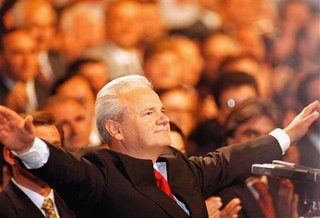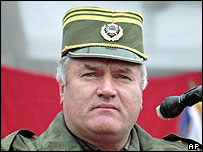I was asked to read and give my thoughts on Getting America Right, by Edwin J. Feullner and Doug Wilson. The book is published by
Crown Forum (
Crown Publishing) . Putting aside the fact that I have never done a book review before, I agreed. All clumsiness of style is strictly my own fault...
This is an explicitly
conservative plan, laid out in six parts. It is more concerned with having any action by government meet a series of questions, than any particular partisan position. They find themselves in a sort of an odd position
vis-a-vis the Republican and Democratic Parties; both have done some things well (welfare reform and tax cuts) but too many things, overall, wrongly (spending, spending, and did I mention spending? over-regulation and over-stepping their proper bounds).
Dr. Feullner is the president of the Heritage Foundation. The Heritage Foundation had a great influence upon the administration of Ronald Reagan, and to an extent upon the later program(s) of Speaker Newt Gingrich. It is to those two that the book often refers or looks to.
Mr. Wilson has been involved in the business and management consulting worlds, but brings big stick to this project by virtue of being the Chairman of
Townhall.com, an on-line conservative news and opinion site.
(note: hey, I'm a blogger - of course I consider running an on-line community to give huge cred to someone. Heh heh.) The questions that the authors suggest be posed about any government action are as follows:
Is it the government's business?
Does this measure promote self-reliance?
Is it responsible?
Does it make us more prosperous?
Does it make us safer?
Does it unify us?
The vast majority of the analysis in this book is checking current policy and programs against these questions. It should come as no shock to find that the authors believe much of governments actions do not answer these questions in the affirmative. I will leave you to read of their solutions to the larger and greater issues, for I want to cherry-pick two proposals I think merit some serious and
immediate consideration.
First (
p. 116-117), the authors suggest every congressional spending measure and conference report be posted on the Internet for at least twenty-four hours before members could vote on it. This would be an expansion of
Thomas - the phenominally useful legislative tracking service. Anyone who has tried to wallow through proposed Congressional legislation has probably said a silent prayer of thanks for Thomas. Everyone, regardless of party affiliation or ideology, should be in favor of knowing what the heck their representatives in Washington D.C. are considering.
Second, the authors propose (
p. 188-189) the formation of a specific entity related to polling foreign public opinion. This would be called the Corporation for Foreign Opinion Analysis (COFA). Being a military CA kind of guy (I'm the CAO for the 108th Sustainment Brigade, ILARNG) I am all in favor of our government getting its hands around this data. A good idea, one that will eradicate a big blank spot in our overseas knowledge.
The authors invite further interested parties to
check their specific site.
 Hangin' at the Main Gate of Bagram AF. The one legged fellow is "Crazy". How he became one legged is a matter of dispute, urban legend and tragedy. Some say it was a RPG shot by a Talib, some say an AK blast, some say it was an accident, etc. Regardless, he lost it.
Hangin' at the Main Gate of Bagram AF. The one legged fellow is "Crazy". How he became one legged is a matter of dispute, urban legend and tragedy. Some say it was a RPG shot by a Talib, some say an AK blast, some say it was an accident, etc. Regardless, he lost it.

















































